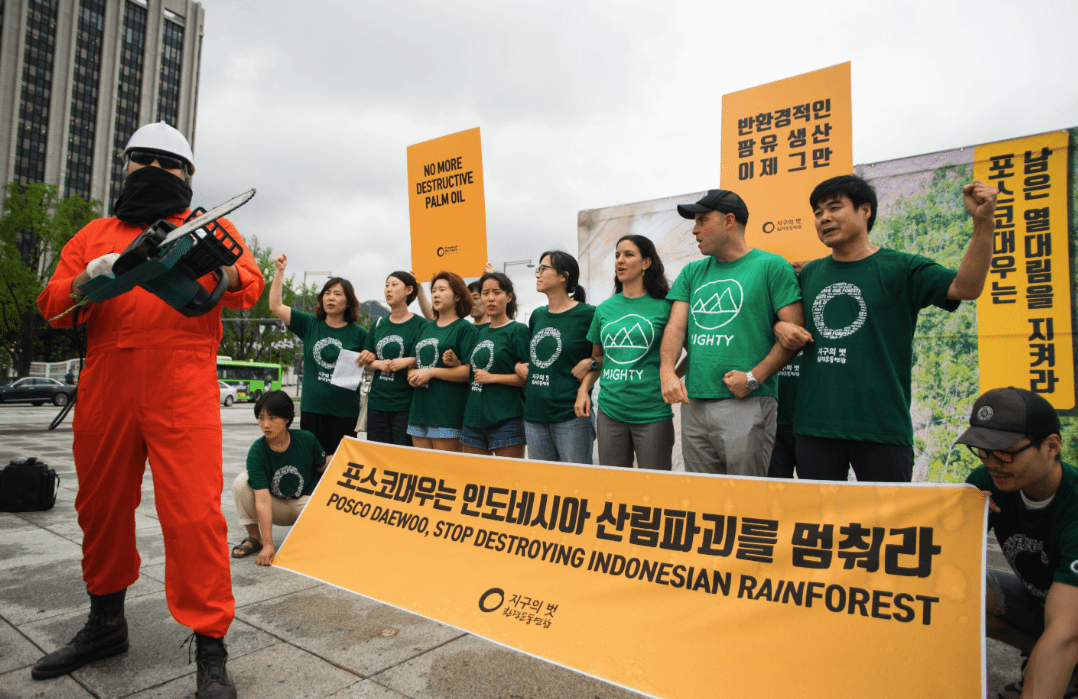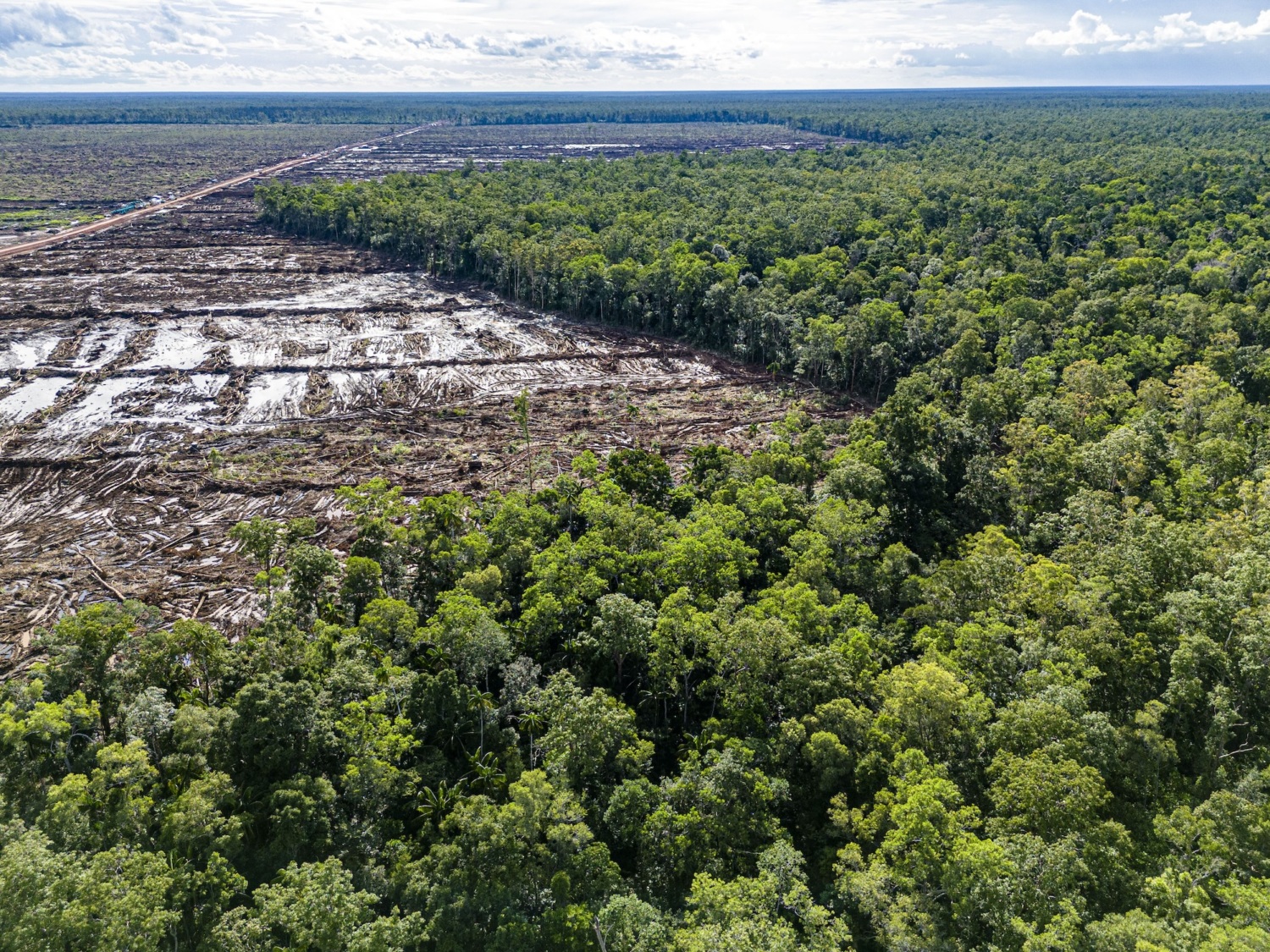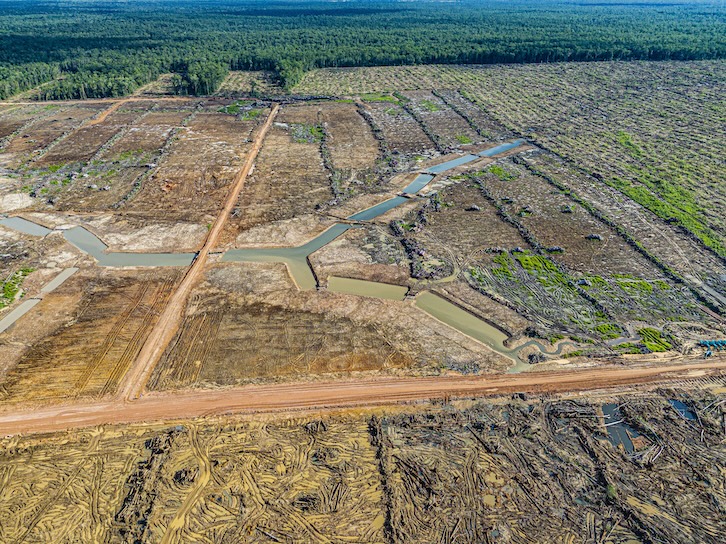
Resistance to Destructive Palm Oil Grows in South Korea
South Korean firms exposed for driving large scale deforestation and human rights abuse in Indonesia
A recent report has exposed the harmful practices of major Korean conglomerates linked to the palm oil industry in Indonesia, leading to public outcry and consequences for some of the companies involved. The report, originally released in Korean and translated into English, is titled Does Spring Come to Stolen Forests, and documents both human rights abuses and environmental destruction: Indonesian workers on South Korean-owned palm oil plantations have routinely been exiled from their land, exposed to hazardous chemicals and pesticides, and forced to work in poor conditions with unstable wages. The South Korean companies are also responsible for cutting down millions of hectares of rainforests, releasing significant amounts of greenhouse gases, and destroying the habitats of critically endangered orangutans, elephants, rhinoceroses, and tree kangaroos.
The report was published by Korea Federation for Environmental Movements (KFEM), South Korea’s largest environmental NGO, and APIL, a Korean human rights legal advocacy group, as part of a palm oil “Week of Action” in March. Their efforts around this report included a press conference, lectures, and meetings with key government ministries and agencies.
A variety of Korean companies are implicated in the report, including POSCO International – Korea’s largest trading company – and Korindo, a notorious Indonesian-Korean palm oil and timber conglomerate involved in massive-scale deforestation. KFEM and Mighty Earth first exposed Korindo in their 2016 Burning Paradise report. Since then, KFEM has worked closely with Mighty Earth to help rein in the South Korean palm oil industry, and the organization continues to break new ground on holding South Korean corporations accountable for their actions.
The report also exposed the Korean Forestry Service’s role in financing nearly 30,000 hectares of rainforest destruction in Papua, Indonesia by POSCO International, a scandal that was covered in an alarming segment (see below with English subtitles) from Korea Broadcasting Service (KBS).
This response from South Korea is evidence of a growing resistance to the destructive practices of the country’s palm oil industry. This progress also disproves the common belief that only Western consumers care about responsibly produced products, and suggests a path forward for curtailing the remaining markets for irresponsibly produced palm oil in Asia.
View the original segment here.
[embedyt] https://www.youtube.com/watch?v=_8wmlJjU7Fk[/embedyt]


